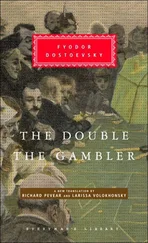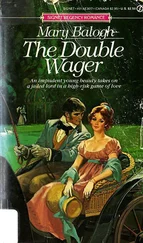When Laurel rejoined Eva and Whit, she apologized for costing them an hour of sleep, and the three of them resumed their walk up the hill. Whit was shaken both by the stink and the utter hopelessness of the fellow Laurel had brought in from the street and by his first view of the inside of the shelter. But after four years there, plus her time as a volunteer, Laurel, he saw, had thought nothing of it.
And he, in turn, was left not merely smitten. He was awed.
L AUREL KNEW SHE hadn’t been much of a date Friday night-either at the restaurant or back at David’s apartment-because she had felt the clock ticking on the time she had with Bobbie Crocker’s photographs. The lawyer’s call had made her uncomfortable. She wanted to be printing the negatives, especially since she had decided that she would spend at least part of Sunday in Bartlett. Consequently, she and David never quite warmed up to each other, and Saturday morning she went home well before breakfast so she could change her clothes and start work in the UVM darkroom. When she had kissed David good-bye in bed, he hadn’t even tried to hide his frustration with her.
“Why are you suddenly so consumed by this? At this point, what does it matter who Bobbie Crocker really was? Why do you care?” he asked her, his face still half-buried in his pillow. Sometimes on Saturday mornings they would have breakfast in bed and then go for a walk before he left to pick up his children. Other times he would go get his girls and then meet her at some predetermined activity far from the sheets where, hours earlier, they had made love.
“Why must you use that word?”
“Consumed? Because you are. Two of your three meals yesterday were with people who knew Bobbie Crocker, and last night you broke our date-”
“I did not break our date!”
“You upended our date, so you could spend time researching a man who may or may not have once been his photo editor. Now you’re leaving to spend a beautiful autumn Saturday in a darkroom. And why are you doing that? So you can spend tomorrow-no doubt, a beautiful autumn Sunday-with people you’ve never met, talking about two dead men who may or may not even have known each other.”
“I don’t know how long I’m going to have these pictures! I told you, Pamela Marshfield has started to bring in the lawyers. For all we know, any day now I’m going to have to turn them over to her!”
He pulled the sheet over his head and wrapped it tightly around his face. She could tell it was meant as a silly, boyish gesture to de-escalate their disagreement before it could become a serious squabble, but they had been so short with each other since the night before that she actually took offense. She had already left the bedroom when he called out, “What did you decide about taking Marissa’s picture? What should I tell her?”
She was lifting her small backpack off the floor by the counter that separated the kitchen from the living room. “I said it’s fine,” she reminded him, aware that she sounded short. But hadn’t they been through this on Friday night? She adored Marissa, and she thought it would be fun to take the girl’s picture. She’d told David that.
“I mean when? She’s going to want to know when.”
Laurel knew there was something she was supposed to be doing one day that week. Monday, maybe. Or Tuesday. A part of her even thought she had something scheduled for that day. She was no longer sure, or-at the moment, anyway-she couldn’t remember. Finally, she suggested, “Monday afternoon, maybe, around four-thirty? Let me check. Maybe I could leave BEDS a little early. I’ll let you know. But if I can’t do it on Monday, we can always do it next Saturday. Okay?” After she’d spoken, she realized instantly that she was hoping he would shout back that Saturday would be fine. Although she knew she would enjoy taking Marissa’s headshots, she was feeling the overwhelming weight of Bobbie Crocker’s photos. And there were just so many other people with whom she needed to speak.
She waited a moment for a response, but didn’t get one. Sometimes, she thought, David seemed to believe that his age alone gave him the privilege of judgment. Lately, whenever they weren’t in bed, she had felt more like another of his daughters than his girlfriend-and a stepdaughter at that. She got the advice, but not the attention. She wondered if she had sounded testy, but then decided she really didn’t have the time that morning to deconstruct everything that she and David had said to each other and left.
When she got home, her apartment smelled musty, and so she opened the window to the small balcony on which she and Talia would sometimes sit and read in the summer. It didn’t have much of a view, but it offered morning sun and there was a glorious maple tree just beside it. Talia’s bedroom door was still shut tight, which didn’t surprise Laurel because it was barely past seven. But she saw her roommate had left a Post-it note for her with the information that there was a message she should listen to on the answering machine. When Laurel pressed the button, she heard an unfamiliar male voice.
“Good afternoon. My name is Terrance J. Leckbruge. I’m a lawyer with Ruger and Oates. Our firm represents Pamela Marshfield. I love your state. My wife and I have a little cottage not far from you up in Underhill, and I’ll actually be there tomorrow and Sunday. It’s just before three o’clock on Friday, and I’m leaving for the day-sorry to call you at the start of a weekend. Please ring my cell when you get in or my place in Vermont tomorrow morning,” he said with a soft southern accent, and then left what sounded to Laurel like a small phone book worth of numbers. In addition to his cell phone and his cottage in Vermont, he had provided an office number and another one for his regular home-both of which had a Manhattan area code.
She had felt herself physically tense when he’d said the word Underhill, and she considered erasing the message and going about her day as if she’d never heard it. Moreover, it was so early that she really didn’t need to return his call for hours. But she couldn’t resist knowing precisely how Pamela Marshfield was going to try to bully her for the pictures. And so before she had even changed into clean clothes or sat down with a bowl of yogurt and a banana, she decided she would ring him back. She imagined there was at least a chance she would pull him from bed.
A woman answered, wide awake, and Laurel thought her voice was nothing like the genteel-sounding attorney to whom she was married. She actually had an accent reminiscent of some of Laurel ’s neighbors on Long Island. Quickly, the social worker introduced herself and explained that she was looking for a lawyer named Leckbruge. Terrance Leckbruge. The woman asked her politely if she knew what time it was, and Laurel said she would only be home for a moment and that her father had been an attorney.
“When lawyers call me,” said Laurel, “I call them back as soon as I can.” This was actually a complete fabrication: The only times lawyers-other than her father-had ever called her had been in the year after she nearly was raped, and usually she procrastinated as long as possible before calling them back. She hated rehashing the incident, but she seemed to have done so endlessly in those months. A moment later, she heard a screen door whine open and then clap shut.
“So, Laurel, pleasure to speak with you,” said Leckbruge, his voice the reassuring drawl that she had heard a moment before on the answering machine. “You’re an early riser, too? How are you doing on this glorious day?”
“I’m doing okay, thanks. What’s up?”
“Let’s see now, what’s up? Well, I had a very nice, very cordial conversation the other day with one of your Burlington attorneys who represents BEDS. Woman named Chris Fricke. I have to tell you, I am mightily impressed with the work you all do at that shelter. You’re an inspiration,” he said, and then he took a sip of his coffee just loud enough for Laurel to hear it in the pause.
Читать дальше












